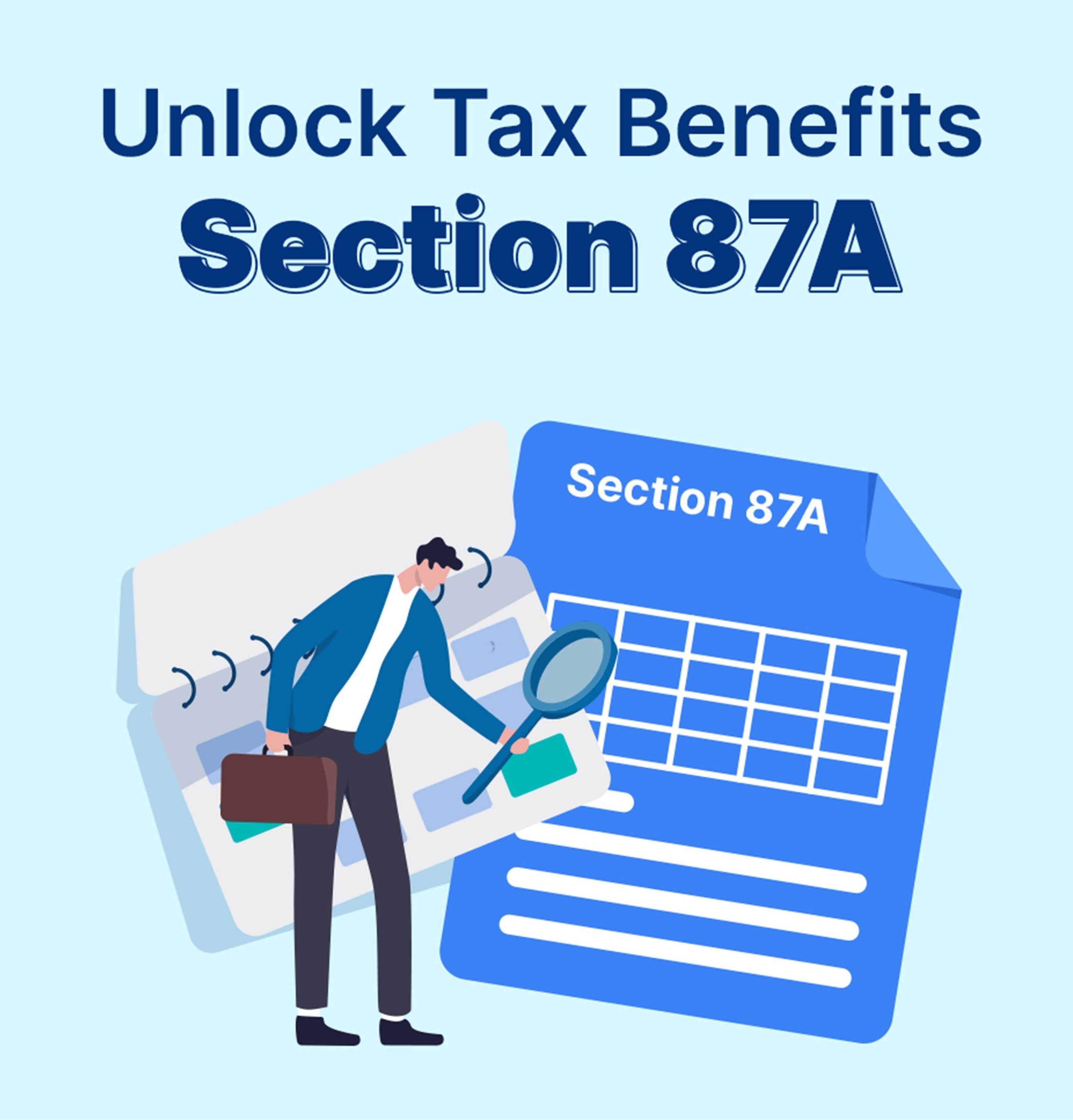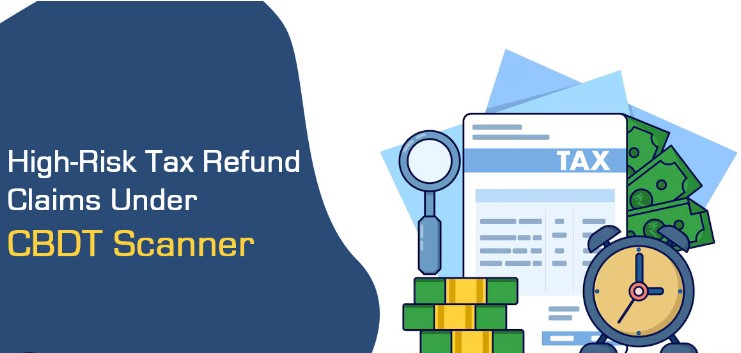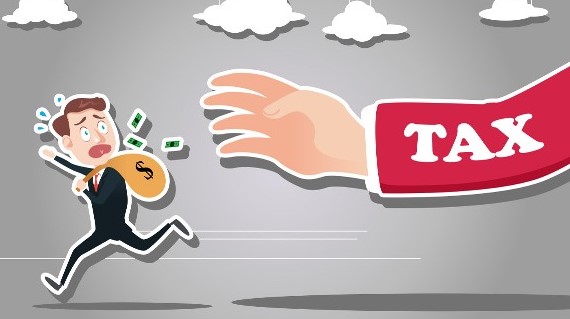
A standoff over rebate claim under Section 87A: Will the recent Supreme Court Ruling help?
Published In : Taxmann Download
Author : Navneet Singal
[2024] 166 taxmann.com 744 (Article)©
Date of Publishing: September 30, 2024
A standoff over rebate claim under Section 87A: Will the recent Supreme Court Ruling help?
Navneet Singal
Tax Litigation Advisor and International Tax Expert, Founder and Managing Partner, EvoBreyta TaxFinTech LLP
Introduction
Albert Einstein, had said long back, that,
"It has become appallingly obvious that our technology has exceeded our humanity."
Technology is on the rise, especially in the field of income tax administration, where it has made it possible to process millions of returns in a matter of days. Getting a refund used to take months, but these days it only takes a few hours. Conversely, there are numerous technical inconsistencies in the software that the Income tax department (ITD) uses to process returns, which have subjected the Assessee to needless harassment. Administrators have assigned all responsibility for these problems to the system or technology.
The Income Tax Department was recently directed by the Supreme Court to update its software instead of blaming technology for incorrect tax assessments. This decision was made in the case of M/s Sunil Bakht v. Asst Director of Income Tax CPC and anr., SLP (C) No(s). 10305/2024, dated 24.09.2024. "Technological impediments cannot be a ground to harass taxpayers," the Supreme Court ruled.
A Bench of Justices PS Narasimha and Sandeep Mehta on September 24 called for immediate steps in this regard. It specifically mentioned that "Technological impediment cannot be a reason for harassing an assessee year after year. Immediate steps must be taken by the Revenue to upgrade the software or take such other steps as may be necessary to ensure that such mistake does not occur in future."
Another feather in the income-tax department's crown is the recent controversy over the allowability of rebate under Section 87A. The department has begun persecuting law-abiding taxpayers because of technological issues with the utility used to file their returns or during the return processing. The author of this paper has attempted to comprehend the problems regarding the allowability of rebate u/s 87A in the new income tax regime and technical glitches in the Income-tax software and potential solutions.
What is Rebate U/s 87A
A rebate is an amount that is deducted from taxes. The maximum rebate limit under Section 87A is Rs. 25,000 under the new tax regime and Rs. 12,500 under the old tax regime. Only if the taxpayer's taxable income for that fiscal year stays below the specified limit may they receive this rebate. Resident Individuals who have taxable income up to Rs. 7,00,000 are eligible for the rebate under the new tax system. The maximum yearly income qualifying for the refund under the previous tax regime was Rs. 5,00,000, with a maximum rebate of Rs. 12,500.
Status of the rebate u/s 87A and technical glitch in the e-filing functionality
The maximum rebate under the old regime was Rs. 12,500. In the new tax regime, taxpayers who earn less than Rs. 7 lakhs can claim a Section 87A rebate of up to Rs. 25,000. However, in certain cases, the rebate is not applicable, such as:
|
(1) |
|
Non-residents |
|
(2) |
|
Long-term capital gains from the sale of equity shares or equity-oriented mutual funds are taxable under Section 112A. |
The rebate is available in the following cases even though the tax is chargeable under a special rate, there is no specific provision disallowing it, i.e.,
|
(1) |
|
Short-term capital gain (STCG) |
|
(2) |
|
Speculative income |
|
(3) |
|
Virtual digital assets (VDAs), etc. |
It is against the law for taxpayers with total incomes up to Rs. 5 lakh (under the previous system) or Rs. 7 lakhs (under the current regime) to be required to pay tax on special rate incomes like STCG. There was no misunderstanding about the Section 87A rebate until July 5, 2024, and the e-filing portal was operating as intended. But starting on July 5, 2024, when the new ITR utility was updated, the department started erroneously denying the refund for several special rate incomes as mentioned in the previous clause. The Income Tax Act's Section 87A and the corresponding special income portions were left intact to implement this modification.
Literal Interpretation of rebate u/s 87A
There is a specific overruling clause at the beginning of Section 115BAC(1A) which governs the new tax regime, which reads as under,
"Notwithstanding anything contained in this Act but subject to the provisions of this Chapter…"
However, nowhere in this section, it has been mentioned that the total income will be computed after excluding the income related to tax at the special rate. Further, proviso to section 87A also nowhere defines that the rebate under this section will not be available to tax calculated under the new tax regime. The proviso to section 87A reads as under,
"Provided that where the total income of the assessee is chargeable to tax under sub-section (1A) of section 115BAC, and the total income—
|
(a) |
|
does not exceed seven hundred thousand rupees, the assessee shall be entitled to a deduction from the amount of income tax (as computed before allowing for the deductions under this Chapter) on his total income with which he is chargeable for any assessment year, of an amount equal to one hundred percent of such income-tax or an amount of twenty-five thousand rupees, whichever is less;" |
|
(b) |
|
exceeds seven hundred thousand rupees and the income tax payable on such total income exceeds the amount by which the total income is more than seven hundred thousand rupees, the assessee shall be entitled to a deduction from the amount of income tax (as computed before allowing the deductions under this Chapter) on his total income, of an amount equal to the amount by which the income-tax payable on such total income is more than the amount by which the total income exceeds seven hundred thousand rupees." |
It is only section 112A(6) that specifically mentions that rebate u/s 87A will not be available on tax computed under this section. According to Section 112A(6), the rebate under Section 87A is not available on long-term capital gains (LTCG) from the sale of listed equity shares or equity-oriented mutual funds. However, this restriction applies only to LTCG, not STCG. Therefore, taxpayers with STCG should still be eligible for the rebate under Section 87A.
While LTCG on listed shares and equity mutual funds is excluded from the rebate, LTCG on other assets like real estate or unlisted shares can still benefit from the rebate. Even other special rate incomes like speculative income and virtual digital assets (VDAs) still qualify for the rebate under Section 87A.
Impact of error in the e-filing/processing utility at the Income-tax Portal
Two major impacts have been seen concerning the change that happened in the e-filing utility w.e.f. July 5, 2024, which can be described as follows:
|
(1) |
|
W.e.f. July 5, 2024, whoever has filed the Income-tax return, no rebate has been allowed to him in respect of the tax calculation on income related to special rates, e.g., tax on the STCG. |
|
(2) |
|
The taxpayers, whose return was filed before July 5, 2024, and has been processed on or after July 5, are receiving demand notices in respect of the tax rebate which has been claimed on the tax calculated on the income related to special rates. |
Potential Solution and Way Forward
Only two solutions could be possible, i.e., either pay the tax demand or fight for it. If a taxpayer has claimed the rebate under Section 87A on eligible income and the ITR has been processed with demand, there is no need to rush to pay the demand immediately.
Many representations have been made to the Ministry of Finance to correct the utility of the Income-tax Portal. Once these corrections are made, the department is expected to reprocess the returns automatically, nullifying any demands.
Further, the recent Apex court ruling in the case of Sushi Bhakt (supra) will also impact the working of CBDT and Income-tax officials to look into these matters instantly and get them rectified or issue clarifications regarding these matters. Until the issue is resolved, it's advisable to wait for a correction rather than paying any unjustified tax demands.
The Income Tax Department must make sure that any improvements to the ITR service are compliant with the Income Tax Act's regulations in order to prevent similar disparities in the future. To make sure that the e-filing portal and return filing utilities are in compliance with the law, careful testing and validation should be done before any changes are made. In order to avoid misunderstanding and unexpected demands, taxpayers should also be promptly informed of any adjustments or changes to the filing procedure. Through improved legal framework and technology platform coordination, the department can avert these kinds of mistakes and protect taxpayers from needless financial hardship. Ensuring smooth compliance and fostering confidence in the system will require clear and precise standards for both police and taxpayers.
Technology should not be a barrier, but rather an aid. India was the first country to provide an online administration for filing taxes, audits, and lawsuits—something that was previously unattainable. We should remember the words of Thomas Edison, that,
"Just because something doesn't do what you planned it to do doesn't mean it's useless."
(This article provides general information and discussion about tax-related matters. The words and other content provided in this article, are not intended and should not be construed as tax advice. If the reader or any other person has a tax concern, he or she should consult with his tax advisor before taking any action)





